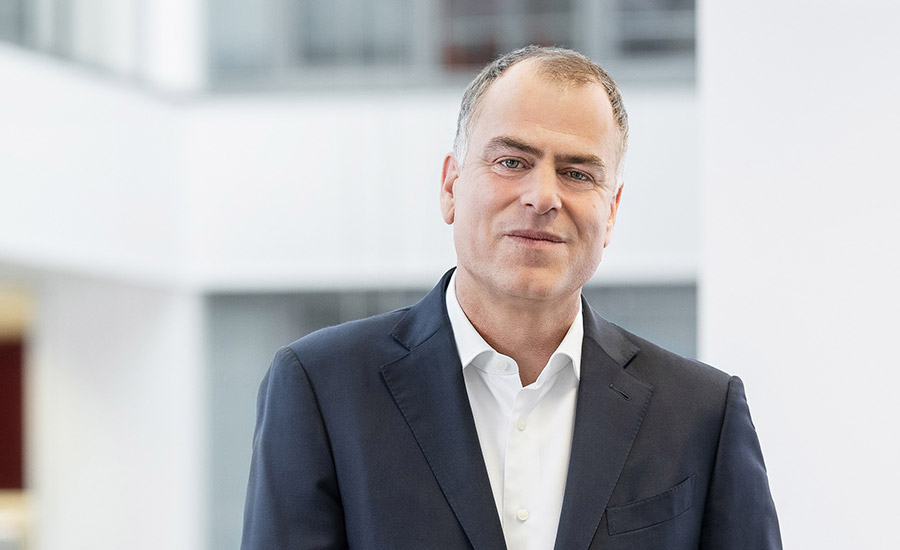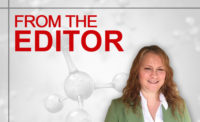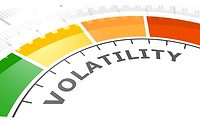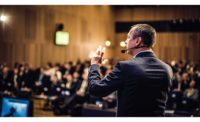I’m excited to introduce our new Voices from the Top series, a companion piece to the 2022 ASI Top 20. To develop Voices from the Top, I reached out to key leaders at some of the top companies in the industry to get their insights on a number of issues.
Thanks so much to the executives at Henkel, 3M, H.B. Fuller, Bostik, and Jowat who participated this year. Here you can discover what they are thinking about subjects such as their companies’ strategies for success, supply chain issues and other challenges, and what opportunities they anticipate for the adhesives and sealants industry.
Jan-Dirk Auris, Executive Vice President, Henkel Adhesive Technologies
Henkel’s Adhesive Technologies segment accounted for 48% of its total sales in 2021, or €9.6 billion (approximately $10.3 billion). Compared to the prior year, the Adhesive Technologies’ segment saw sales increase by 11%, due primarily to industrial recovery following the COVID-19 pandemic, as well as pricing increases. Henkel is ranked number 1 on the 2022 ASI Top 20.
Jan-Dirk Auris serves as executive vice president for Henkel Adhesive Technologies. He recently shared his thoughts on the company’s business strategies, trends facing the industry, and plans for the future.

Jan-Dirk Auris is executive vice president of Henkel Adhesive Technologies. (Photo courtesy of Henkel.)
To what do you attribute Henkel’s success, particularly given the significant challenges of the last couple of years?
The last years have been characterized by multiple unpredictable challenges, especially with the outbreak of the COVID-19 pandemic and a significant decline in the industrial production globally in early 2020. However, after a sequential demand recovery in the second half of 2020 across all business areas and regions, we have been able to even outperform our pre-pandemic results in 2021—despite of the well-known impacts of transport and logistics, availability of raw materials, and increasing costs across our supply chains.
The main success factor in our adhesives business at Henkel is our strong focus on our customers. Based on our global market know-how, our strong team of experts, and our unmatched technology portfolio, we make high-impact solutions happen that create value for our broad customer base around the globe. Therefore, we are in close contact with them on a daily basis, understanding their different needs and collaboratively start working on solutions already in the design phase of new products.
To achieve this, we are constantly reviewing and investing into our portfolio, our tools and teams as well as into our innovation capabilities. In terms of innovation, we are focusing our efforts on key megatrends such as mobility, connectivity, and especially sustainability.
For example, we have started operating our new Inspiration Center Düsseldorf during the pandemic in 2021, the biggest single investment in our company’s history. The €130 million plus [approximately $138.9 million] building serves as an innovation center with more than 30 laboratories, as well as a global customer center that significantly enhances our collaboration and innovation capabilities. For the first time ever, we now can showcase and connect all our technologies under one roof and offer more than 600 employees a modern and inspiring work environment reflecting new work models as well. And we are currently constructing a similar innovation center for the Asia-Pacific region in Shanghai.
On the other hand, the speed and impact of digitalization is a real game-changer for us that not only allows us to develop products faster but also accelerates and improves our abilities to interact and react. Over the past years, we have implemented different tools and technologies that help our teams in R&D, supply chain, and sales functions to reach a new level of agility and collaboration. In addition, we have a strong focus on our people and constantly invest in training and talents.
And last but not least, we are focusing our resources on future opportunities. Today, without a doubt sustainability is the overarching theme that sparks innovation—across all end-use sectors around the globe. The digitalization has changed the way we work, but solutions tackling climate change and contributing to a lower environmental footprint have become key to drive value for our customers and society. At Henkel, we have a longstanding valued tradition to foster sustainability since decades. Thus, we are in a strong position to support our customers to reach their sustainability targets with regards to CO2 reduction, circular economy, or health and safety efforts.
What are your expectations for the adhesive and sealant industry through the remainder of 2022 and the first half of 2023? What challenges and opportunities are you anticipating?
Our Adhesive Technologies business unit had a very strong start into 2022. For the first quarter, we reported nominal sales growth of 11.6%, with all our business areas contributing, from €2,358 million [~ $2.5 billion] in the prior-year quarter to €2,631 million [~ $2.8 billion]. Organically (i.e., adjusted for foreign exchange and acquisitions/divestments), we increased sales by 10.7% compared to the first quarter of 2021. Volumes remained stable, while prices rose in the double-digit percentage range. For the full year 2022, we now expect organic sales growth in the range of 8.0 to 10.0%, mainly due to passing on of higher raw material and logistics costs in the form of higher prices.
We will continue to face a lot of different challenges for the remainder of the year and for 2023 as well. The extraordinarily tense situation on the raw material markets and in global supply chains has been worsened by the war in Ukraine. As a result, prices for direct materials and logistics services have once again increased significantly and stronger than previously anticipated. In addition, we have announced in April to exit our business activities in Russia, and we have decided to discontinue our operations in Belarus as well. This affects total annual sales in a mid-three-digit million euro range for Adhesive Technologies. With regard to material prices, we now anticipate an increase in the mid-twenties percentage range for the full year compared to the average for 2021.
However, we also see a lot of opportunities to further grow our business and to bring the value creation for our customers to the next level. Sustainability has become a key differentiator in the transformation towards a greener world, and we will continue intensifying our efforts here. At Henkel, we are highly committed and well-positioned to support our customers with innovative solutions across industries that will enhance sustainability in a broad variety of applications.
How will your company address these challenges and opportunities moving forward?
In terms of raw materials and logistics, we are working very closely with our customers and suppliers and have installed task forces for each of our business units to mitigate challenges and steer our supply base. Thanks to the full commitment of the teams, we could avoid significant impacts on our operations and in customer supplies until now. As already announced in our outlook for 2022, we are forced to pass on to our customers the significant increase in raw material and logistics costs in the form of higher prices.
Our key focus moving forward will be on executing towards our sustainability ambition to further drive a real impact. Therefore, we aim to lead by example as well as to lead by technology. Besides continuous investment into our own operations, we aim to cut the CO2 emissions from our raw materials by at least 30% by 2030 and will transform our portfolio by using more renewable carbon-based materials.
During the past years, the amount of recycled and bio-based content has already become more important in our material play. For example, we have launched the first bio-based structural adhesive for consumer electronics applications last year. The hot melt consists of up to 60% renewable contents and at the same time offers enhanced properties for the debonding of smartphones.
The focus of our technology innovations will be on solutions and services that enable emission reduction and circularity—and the opportunities are uncountable here. This for example includes new solutions for sustainable mobility such as electric cars, replacing plastics in packaging to improve the recyclability and to drive a circular economy, or debonding solutions to enable the repair of consumer goods and appliances for expanded lifecycles. In all these areas, adhesives play a key role to further drive sustainable solutions contributing to lower CO2 emissions, reducing waste, and enhancing health and safety for consumers and for heavy industrial sectors.
For more information, visit www.henkel.com.
View Other Participants:




